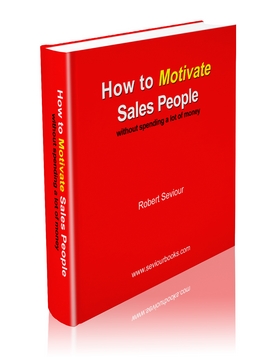![]()
'To Be Honest, I Woz Just Gonna' -
and other Bad Words
* * *
Take this classic: Customer, 'Will this phone work in Europe?'
Reply by salesperson, 'I ought to'.
What does that mean? The question is simple enough, 'When I get off the plane at Frankfurt, will I be able to use this item?'
What she or he wants to hear is either, 'Yes, it will, or ''No, that one won't, let me show you one that will'.
The moment you put some of the kind of vocabulary I'm referring to into context, you can see that it isn't helping your case.
'Have you despatched my order?' - Another straightforward question. What impression does it create if the answer is, 'I was just gonna do that' – meaning, in truth, 'I haven't sent it, yet'?
Try this one, 'Which of these items is the most economical to run?' Answer, 'To be honest, blah, blah, blah . . . ''
What is the inference of 'To be honest'? If you take the words literally, then anything said before wasn't truthful.
Hopefully you see what I mean.
Oops, 'hopefully' is another popular word which does us bad service. 'When can I expect delivery?' 'Hopefully, you'll get it tomorrow morning.'
That's not much better than saying, 'We don't guarantee delivery dates'.
'Should' and 'ought' are guilty of the same offence too. 'They should do something about it' most likely means that nothing is going to happen. 'It ought to . . . ' – doesn't help either.
I once made a list of words and phrases like this and stuck it up on the office wall. Every new one I heard was added to the list. It didn't take long to fill a page. But I don't want you to react the way some of my seminar delegates do, by saying ''I can't open my mouth without saying some of these things'. So I'm not going to give you all the confidence-sapping verbiage that I collected back then.
Instead, here's a good way to notice speech habits and change them if they aren't good. Just tape record yourself having a typical dialogue with a customer. I expect you will hear some of the words I've mentioned.
And another thing, you may spot that you interrupt the customer as he or she is telling you something you should have listened to with full attention.
Hopefully I don't need to tell you that interrupting is usually bad. J
So far the verbiage I have mentioned has been negative, let's consider what it is ok to say.
Although it comes with the need take responsibility for the outcome, employing, 'I will . . . (something or other)' is far better if you want your prospect to have a feeling of confidence.
The reason that its use is less common than weasel words such as 'should' and variants is that ''will . . .' lands you with the obligation to do something, whereas ''hopefully' comes without any binding responsibility.
You'll never exclude all the 'bad' words, some of them are part of everyday colloquial speech. But to be a sales professional, trim out the worst ones, it will make you more convincing, hopefully – (just kidding).
If you enjoyed this article, take a look at my book.
More articles on better selling
Questions/comments - drop me a line at
![]()
